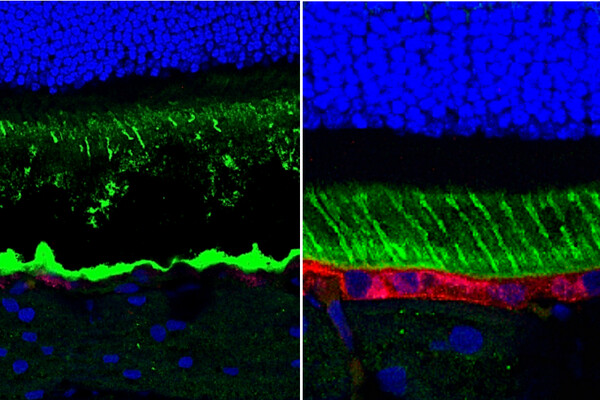
Penn Vet Dean Joan Hendricks will lead a “satellite session” on issues around livestock and health at the Ninth Annual CUGH Global Health Conference in New York City on Thursday, March 15.
nocred

Penn Vet Dean Joan Hendricks will lead a “satellite session” on issues around livestock and health at the Ninth Annual CUGH Global Health Conference in New York City on Thursday, March 15.
nocred

Gene therapy successfully treated a canine version of Best disease, a blinding disorder, the effects lasting more than five years. In these images of the retina of untreated (left) and treated (right) dogs, one can see that BEST1 gene expression (in red) was restored following treatment. In addition, the threrapy restored the structure of the RPE (green layer), a layer of cells that supports the light-sensing photoreceptor cells.

A women’s ward in the Hospital of the University of Pennsylvania, circa 1903. Patients unable to pay for their hospital care would’ve come to such a place. When the flu pandemic arrived 15 years later, HUP was at the forefront of providing care to the city.